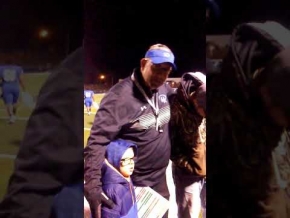Binge drinking among minors a major spring break problem

By Lauren Barnes
Northeast Texas Coalition Against Substance Abuse
Spring break is a time for teens to experience freedom from school and spend time with friends and family. However, extra free time and lenient rules can also increase underage drinking, specifically binge drinking.
Whether you stay in Daingerfield with your teens over the break, go on a family trip or send your kids on a trip with friends, the dangers of binge drinking and the other risky behaviors associated with it are very real.
It is our job as parents and other caring adults to understand the importance of keeping Daingerfield teens safe during a week where they are at a high risk to experiment with alcohol and engage in other risky behaviors.
We already know that of local teens who are current drinkers, 86 percent of them report that they are binge drinking, according to the Texas School Survey. The TSS defined binge drinking as drinking five or more alcohol drinks on the same occasion. Add this to the increased risk during spring break, and the outcome can be very dangerous.
Dangers of binge drinking
One of the greatest dangers of binge drinking is alcohol poisoning. Alcohol poisoning occurs when there is so much alcohol in the bloodstream that areas of the brain controlling basic life-support functions, such as breathing, heart rate and temperature control, begin to shut down and can lead to death if not properly treated.
Symptoms of alcohol poisoning include confusion, difficult remaining conscious, vomiting, and seizures, trouble breathing, slow heart rate, clammy skin, dulled responses and extremely low body temperature. Never assume that an unconscious person will be fine by sleeping it off. A person’s blood alcohol content level can continue to rise even when unconscious. If you suspect someone has alcohol poisoning, get medical help immediately. In addition to alcohol poisoning, binge drinking leads to other risky behaviors. Underage youth who engage in binge drinking are approximately 11 times more likely than other underage drinkers to engage in additional risky behaviors, such as tobacco and other drug use, physical violence and unsafe sexual behaviors, according to the Substance Abuse and Mental Health Services administration.
What you can do to prevent it
Studies show that students who vacation with friends during spring break dramatically increased their alcohol use. In contrast, students who stayed home or vacationed with parents during spring break were at low risk for excessive alcohol use, according to the “Journal of Studies on Alcohol and Drugs”.
The best way to protect our teens from the potentially deadly consequences of spring break binge drinking is to avoid spring break. The part of the brain that says “Wait, stop! This is a bad idea.” isn’t fully developed until the mid-twenties, so even with the best intentions, many teens can still fall into unhealthy behaviors.
If you already have plans for a spring break hot spot, like the beach, make sure you talk to your kids about the dangers of underage drinking and set a clear notolerance rule.
Despite the fact that many parents think that their teens don’t listen to them, parental disapproval is still the number one reason teens choose not to drink alcohol. If you choose to stay in town for the week, be aware that parties will still be happening.
Parents need to lock up their alcohol, never provide it to minors, continue guiding healthy choices with your teens and give them the facts about the consequences of underage drinking.
Outside of the home, we must work together to make it less likely that minors will have access to alcohol. Never serve a minor alcohol and hold other adults accountable as well. Business owners that serve or sell alcohol need to make sure their staff is properly trained on how to check id’s, what to look for in a fake id and ensuring they don’t sell alcohol to minors. By working together, we can help our local teens have a safe, healthy spring break.
About: Northeast Texas Coalition Against Substance Abuse is a program of Next Step Community Solutions, a Tyler-based nonprofit. The coalition is made up of concerned community members and works to prevent adolescent drinking, marijuana use, synthetic marijuana use and prescription drug abuse in Cass, Bowie, Franklin, Morris and Titus counties.
- Log in to post comments








